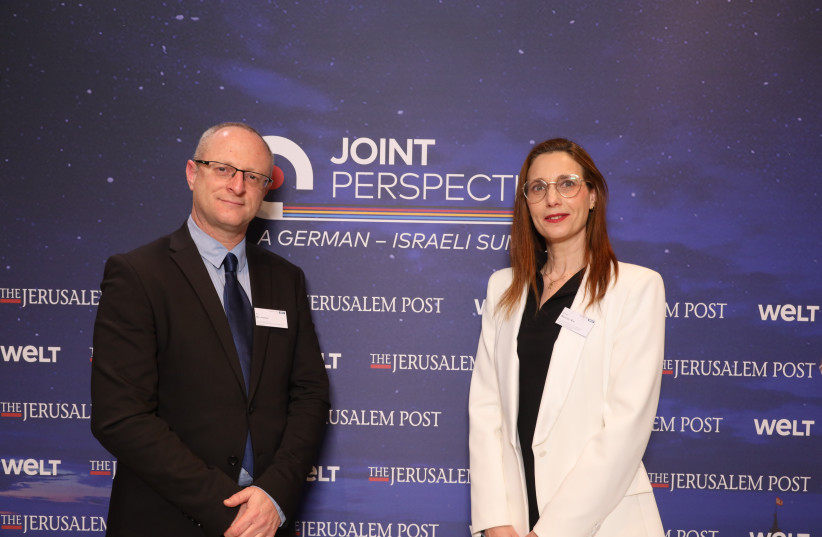Raheli Baratz-Rix, head of the World Zionist Organization’s Department for Combating Antisemitism and Enhancing Resilience, and Ron Brummer, Deputy Director-General of the Diaspora Affairs and Combating Antisemitism Ministry, spoke about the alarming rate of antisemitism, at Joint Perspectives, a conference hosted by the German newspaper WELT and The Jerusalem Post in Berlin on Wednesday.
“The terror we witnessed on October 7 was not just directed at the State of Israel, but at the entire Jewish population,” said Baratz-Rix, who pointed out that in the first two weeks of the war, there was an increase of 1,200% in online posts that included violent antisemitic sentiments.
While she pointed out that 2023 began with a decline in antisemitic events, since October 7, their number has rapidly increased worldwide. “There is no geographical or political connection between Canada, Australia, Brazil, and the campuses in the United States,” she said, “but in all of these places, we have seen an increase of over 700% in antisemitic incidents.”
Criticizing Israel does not have to equate to antisemitism, though it often does
While people have the right to criticize Israel and its policies, she said, one cannot disregard Israel’s very right to exist.
Baratz-Rix added that the adoption of the IHRA working definition of antisemitism by an increasing number of countries and universities offers a glimmer of hope in the struggle against antisemitism. She stated that there is a new form that is less acknowledged – that of silence in the face of antisemitism. “We cannot let this silence prevail. We must loudly and proudly proclaim there is no place for antisemitism today.”

Brummer said that sympathy for Israel’s cause continues to decline, especially in Western countries where those identified with the progressive Left seek to undermine the legitimacy of the State of Israel using antisemitic propaganda. This phenomenon has intensified since the outbreak of the Gaza war on October 7.
He added that the Palestinian Authority bears a great deal of responsibility by acting as a focal point for disseminating and promoting calls for the destruction of the State of Israel and the murder of Jews. “Within this context,” said Brummer, “the Palestinian educational system continues to be the main factor for assimilating antisemitic narratives as part of the Palestinian national identity.” In addition, he said, organizations within civil society, such as the BDS movement, have continued their efforts to promote boycotts of the State of Israel.
Despite the alarming increases in worldwide antisemitism, the deputy director-general said that there have been successful attempts to counter the trend this year. “At the top of the list,” he stated, “many countries, organizations, and international institutions passed draft legislation and laws to fight antisemitism, many of them following the events of October 7.”
He praised Germany, the conference’s host, for its efforts in combating antisemitism and mentioned the importance of the adoption of the IHRA definition, which, he said, “continues to serve as the most essential, accepted, and effective internationally used tool to identify and brand antisemitic expressions.”
Brummer concluded his remarks by recommending that those fighting antisemitism must shift from a defensive posture and take proactive measures against its perpetrators and centers of dissemination.
This article was written in cooperation with the WZO.